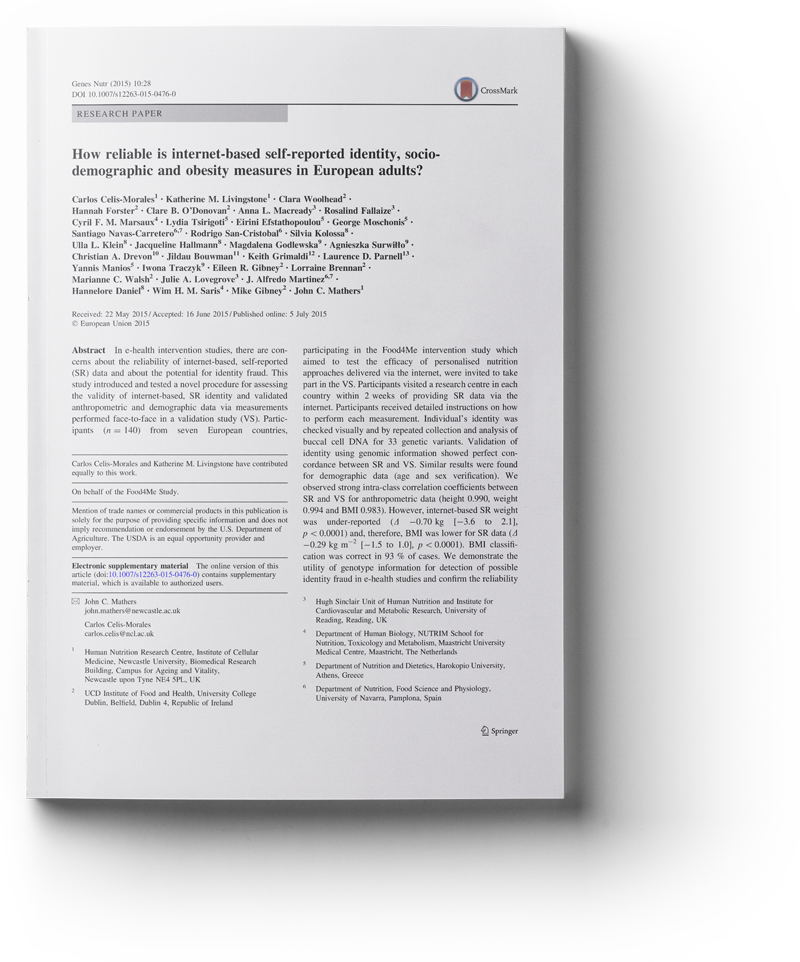Improving lifestyle behaviours has considerable potential for reducing the global burden of non-communicable diseases, promoting better health across the life-course and increasing well-being. However, realising this potential will require the development, testing and implementation of much more effective behaviour change interventions than are used conventionally. Therefore, the aim of…
Authors: Celis-Morales Carlos, E. J. Daly et al on behalf of the Food4Me Study
Publication date: 10/12/2014

